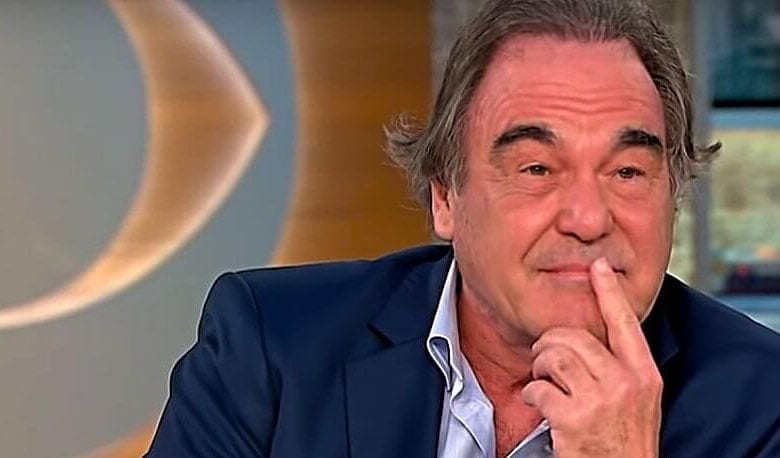Stone’s ‘South of the Border’ Aged as Poorly as Possible

What a difference a decade makes.
Ten years ago, director Oliver Stone uncorked a love letter to Latin America dubbed “South of the Border.” The documentary followed “revolutionary” leaders like Venezuela’s Hugo Chavez and Bolivia’s Evo Morales.
Even liberal media outlets choked on the film’s unabashed bias. It’s one thing to cheer Michael Moore cozying up to socialists. This went to a new, mortifying level.
One outlet muttered, “what happened to the skeptical director of ‘JFK,’ the guy who questioned the official story?”
There is no talk about how Chavez revoked the licenses of private TV and radio stations. There is never any mention of the human rights concerns raised by Amnesty International. Stone never talks to any Venezuelan citizen about the leader.
At the time, Stone said he hoped to correct the negative image those leaders generated from U.S. media outlets. What he did was fawn over budding dictators, glossing over human rights abuses in the process.
This week, “South of the Border” looks even worse in retrospect. Morales resigned in disgrace as a series of election-related scandals left him with no other choice.
The people, at long last, had their say.
A large crowd that formed in the capital’s main square rejoiced, some crying tears of joy. “This is not Cuba, nor Venezuela. This is Bolivia, and Bolivia is respected,” the crowd shouted.
The liberal Atlantic spelled out just why Morales quit.
Evo Morales has been attacking Bolivia’s democracy for many years. Since coming to office in 2006, the socialist president has concentrated ever more authority in his own hands, denounced the opposition in aggressive terms, and placed loyalists in key institutions, from the country’s public broadcaster to its highest court….
What he and some of his most credulous Western supporters described as a coup was in fact something very different: proof that Bolivians—like the citizens of many other countries around the world—resent arbitrary rule.
The outlet goes on, saying Morales’ “enmity toward any semblance of the rule of law became more and more evident.”
This comes on the heels of Chavez’s nightmarish legacy in his home land. The strongman, who died of cancer in 2013, deserves credit for the country’s current condition.
Starvation. Death. Hopelessness. Current Venezuelan president Nicolas Maduro may have exacerbated those problems, but the source of them remains clear.
The instinct of many has been to blame the bumbling Maduro. But Venezuela’s current crises are a culmination of Chávez’s politics and policies that Maduro first hid behind and then doubled down on….
Venezuela is now boxed in by Chávez’s ugliest legacy—dictatorship.
Yes, the populist cared more for himself than his citizens.
Hugo Chavez created a governmental system where criminals and terrorists seeped in to the most powerful offices in Venezuela’s government. He constantly appointed and fired ministers who challenged his authority, which created job instability and a mentality to steal as much as one can before being fired. Chavez also radically changed the relationship with the military by using them to enforce his will as a tool of the socialist revolution. Nevertheless, with vast amounts of oil wealth, no oversight, and a major drug trafficking route to Europe, Venezuela became ripe for criminal groups to move in, especially with a president who was willing to work with them in order to please the political elite and stay in power for life.
Somehow, Stone missed all of these signs in his agitprop documentary.
RELATED: Oliver Stone’s ‘Snowden’ Makes Leaker Ready for Mt. Rushmore
Once more, The Atlantic says it best when it comes to Latin America’s geopolitical truths and, indirectly, the legacy of Stone’s documentary.
From east to west, and south to north, the dream of Latin America’s so-called pink wave has turned into a nightmare. And the many scholars, writers, and politicians who have for years sung the praises of aspiring dictators like Maduro and Morales should not be easily forgiven for sacrificing the rights of distant people on the altar of their rigid ideology.
